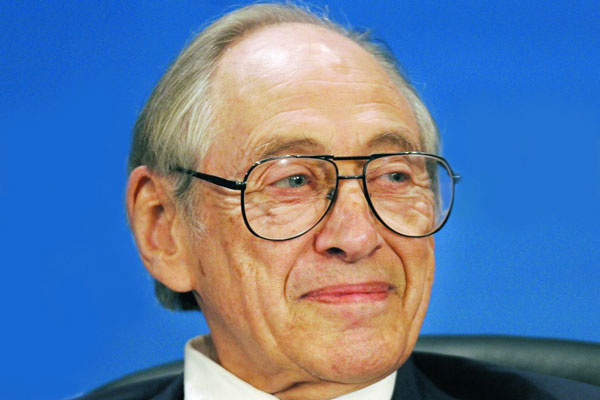
Eating is a piece of cake! We find it very easy to eat — we do not need to think about it nor do we have to practise it. We do it every day, several times a day, and we have done it all our lives. We do it because we need to do it, in order to stay alive, and we do it because we like to do it. There are lots of different types of food, many different combinations and recipes, all enticing us to partake wholeheartedly. We do not need qualifications to eat, nor are we awarded qualifications for eating. We simply cut the selected piece of food into a suitable size and put it in our mouth; we chew it (not necessarily according to the old adage of 32 times for each mouthful); we swallow it; we digest it (or rather the body does) and eventually we will discharge it in another format.
by Tim Middleton

In a similar vein to what was argued above, we do not need qualifications to learn, nor should we be awarded qualifications for learning. We simply cut the selected piece of experience or knowledge into a suitable size and put it in our mind; we chew it (not necessarily 32 times); we swallow it; we digest it (or rather the mind does) and eventually we will discharge it in another format.
The reason we offer such sentiments here is that for generations, literacy has been traditionally understood as the ability to read, write, and use arithmetic. Successive governments around the world have consistently sought to measure and improve the literacy levels of children; the New Curriculum in Zimbabwe still seeks to ensure all children achieve basic literacy and numeracy. However, in contrast to all of this, Alvin Toffler famously predicted that “The illiterate of the 21st century will not be those who cannot read and write, but those who cannot learn, unlearn, and relearn.” We need to unpack that and learn, first of all, what it means to learn.
Learning should be as easy and natural as well as essential as eating. We must ensure children can learn and can learn, above all, how to learn. Learning does need to be learned but the process is similar to the steps of eating as we have noted above. In different words, we may learn by the acronym LEARN. Firstly we need to listen, to allow what is happening around us to come inside us. It is far more important to listen than to read and write (we may “listen” to what people say in their writing, of course) as people and events are “speaking” all the time all around us — many people are fluent speakers and listeners of their language even if they cannot read or write it. Secondly, for us to learn we need to explore what we have heard; we must look at it from different angles, in different sections as we chew on it, to break it down into more manageable pieces. Thirdly, as we seek to learn we must apply what we have heard and explored to our own situation and experience; we need to swallow it, internalise it and ingest it for ourselves. Fourthly, we will Reflect on it as we allow our mind to digest it and to let it energise and sustain our whole being. Lastly, for learning to be effective we must realise we Need it. For us to learn we must listen, explore, apply, reflect, need.
What applies to eating can apply to learning. We do not eat in order to pass stools, so equally we do not learn to pass exams. We eat and learn to become stronger, healthier, fitter, more active and more useful. We chew on what we eat and learn before we swallow what is produced and the effect will transform our body and our life. We need to eat and learn each day to the extent that it is a natural and reflex action. Many folk have shared, in differing ways, that “the day we stop learning is the day we stop living,” just as the day we stop eating is the day we stop living. Albert Einstein put it more bluntly: “Once you stop learning, you start dying.” That is why we must continue to learn and learn and learn. We may have to learn to read and write but before we do that, we have to learn to learn.
To be literate, we must continue to learn all through life, just as we continue to eat all through life. Charles Darwin is often attributed with saying “It is not the strongest of the species that survives, nor the most intelligent that survives. It is the one that is most adaptable to change” — we might change that slightly to refer to the one who is willing to learn. Similarly, Eric Hoffer has pointed out that “In a time of drastic change it is the learners who inherit the future. The learned usually find themselves equipped to live in a world that no longer exists.” Our world has changed — but we still need to eat. And learn. As John Wooden, the successful basketball coach, said, “It’s what you learn after you know it all that counts.”
Tim Middleton is the executive director of the Association of Trust Schools and author of the book on “failure” called Failing to Win. email: [email protected] website: www.atschisz.co.zw











